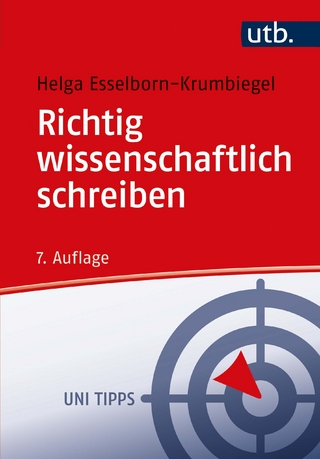
500 Tips for Teachers
Routledge (Verlag)
978-1-138-16017-0 (ISBN)
Sally Brown, Carolyn Earlam, Phil Race
Part 1 Techniques for effective teaching and classroom management; Chapter 1 Meeting a class for the first time; Chapter 2 Gaining attention and settling a class down; Chapter 3 Coping with interruptions; Chapter 4 Learning names; Chapter 5 Avoiding disruption in your class; Chapter 6 Using blackboards; Chapter 7 Organizing practical lessons; Chapter 8 Doing yard/bus/break duties painlessly; Chapter 9 Ensuring equality of opportunity within your teaching; Chapter 10 Strategies for raising achievement; Part 2 Planning and assessment; Chapter 11 Assessing pupils’ work; Chapter 12 Giving pupils face-to-face feedback; Chapter 13 Getting feedback from pupils; Chapter 14 Using self- and peer-assessment; Chapter 15 Making sense of new structures; Chapter 16 Planning schemes of work; Chapter 17 Invigilating internal exams; Chapter 18 Writing reports; Chapter 19 Preparing for an inspection; Part 3 Using teaching and learning resources well; Chapter 20 Preparing interesting handout materials; Chapter 21 Preparing learning packages; Chapter 22 Getting the most from the library; Chapter 23 Organizing resources; Chapter 24 Making do with limited resources; Chapter 25 Making your classroom into an attractive learning environment; Chapter 26 Making effective displays; Chapter 27 Taking pupils on a trip; Chapter 28 Visiting museums and art galleries; Part 4 Supporting pupils’ learning; Chapter 29 Helping pupils who don’t read well; Chapter 30 Helping pupils who don’t do maths well; Chapter 31 Helping pupils to learn together; Chapter 32 Helping pupils to revise effectively; Chapter 33 Helping pupils to pass exams; Chapter 34 Helping pupils to be creative; Chapter 35 Helping pupils to write essays; Part 5 Providing personal and pastoral care; Chapter 36 Being an effective Form Tutor; Chapter 37 Getting pupils to talk to you; Chapter 38 Helping pupils who don’t believe in themselves; Chapter 39 Coping with emotional pupils; Chapter 40 Breaking bad news; Chapter 41 Helping pupils to recover from setbacks; Chapter 42 Helping pupils towards university or employment; Chapter 43 Coping with parents’ evenings; Chapter 44 Dealing with difficult parents; Chapter 45 Coping with emergencies; Part 6 Being an effective colleague; Chapter 46 Working with colleagues; Chapter 47 Coping with difficult Heads of Department or senior staff; Chapter 48 Managing a department; Chapter 49 Covering for absent colleagues; Chapter 50 Coping with stress; Chapter 51 Planning your career progression; Chapter 52 Applying for jobs; Part 7 Information and communications technologies; Chapter 53 Choosing computer-aided learning packages; Chapter 54 Getting pupils used to the idea of learning from a machine; Chapter 55 Getting pupils used to mice and keyboards; Chapter 56 Finding out how computer-assisted learning is going; Chapter 57 Using e-mail to support learning; Chapter 58 Helping pupils to get started with e-mail; Chapter 59 Giving pupils feedback using e-mail; Chapter 60 Helping pupils to learn with computer conferencing; Chapter 61 Using video for learning; Chapter 62 Using audiotapes for learning; Chapter 63 Using multimedia packages for learning; Chapter 64 Using the Internet for learning; Chapter 65 Helping pupils to learn from the Internet;
| Erscheinungsdatum | 19.03.2017 |
|---|---|
| Reihe/Serie | 500 Tips |
| Verlagsort | London |
| Sprache | englisch |
| Maße | 156 x 234 mm |
| Gewicht | 453 g |
| Themenwelt | Sozialwissenschaften ► Pädagogik |
| ISBN-10 | 1-138-16017-2 / 1138160172 |
| ISBN-13 | 978-1-138-16017-0 / 9781138160170 |
| Zustand | Neuware |
| Informationen gemäß Produktsicherheitsverordnung (GPSR) | |
| Haben Sie eine Frage zum Produkt? |
aus dem Bereich


